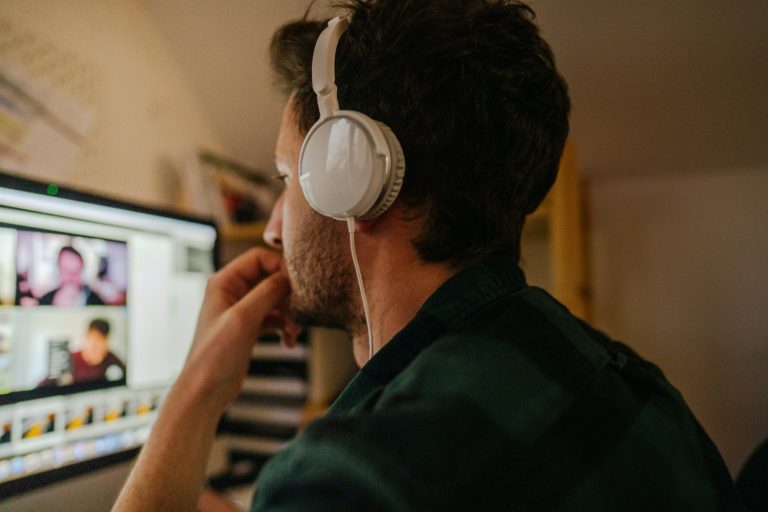How to Prepare Your Team to Get Back to the Office – and Making the ‘New Normal’ an Opportunity

It was only a while ago when I was stressed about working from home. Can I be effective when I’m isolated from my clients and colleagues? How can we keep crucial projects running without meeting each other regularly? Now – I personally kind of enjoy it. Slow mornings. Focus on important matters. Newly acquired black-belt-level skills in remote work (no, I don’t have small children to remote-school, I admit). And as a team we seem to create action much faster than in the past.
But now change is looming again: gradually, we’ll be returning to office life, and leaders will need to start preparing for the ‘new normal’. We can’t go back in time, but we will also not continue fully remote. Could these two realities meet half-way? Can we learn something from work during Covid-19 and take the best of both worlds?
Reflecting on the past two months in lockdown, I have found 7 benefits I would love to keep. As a leader, now is the time to take stock of what has worked and begin preparations for a return to the office.
1. How are you? Bringing in the human factor
Our management team has traditionally been a ‘let’s get to business and leave-the-small-talk’ type of a team. Early in the crisis, however, we noticed that we need the human connection more than we thought. Today, a standard part of our agenda is a round robin asking ‘How are you?’ – and it’s as okay to say your energy is low, as it is to say you’re really excited. This human focus has brought us closer to each other and improved us as a team.
Definitely a keeper. If tapping into the human factor has not been part of your way of working in the past, now is the time to ask yourself: how are you making sure leaders have time to listen?
2. Overdosing on trust, transparency, and action
Remote work has literally opened up a window to our living rooms. On our calls we have seen dancing teens, toddlers making an intervention, many dogs. And instead of getting irritated, we have loved it. The clash of work and home has made us realize that we are all in the same boat, and that makes us more likely to trust each other.
With trust, we often execute faster. Nobody wants endless video meetings (there’s enough of them already) and hence people have grown into taking responsibility. In crisis we’ve gone from object to subject, and we move faster. Besides, micro-managing is really tough remotely. Unless you think employee surveillance is a good idea (it’s not) you need to trust your colleagues to follow through.
What could be the unnecessary processes or habits you give up when coming back to the office? Can you reduce control, decrease reporting – and replace it with trust?
3. Physical activity – a little, often, and together
When social distancing started I was worried that my fitness would be hit hard. No gyms, no tennis, not even the commute to work. Luckily, I was wrong – it has been fascinating to find a new world of working out. Now I take a walk every morning to start my day, something I never did before. I admit, I used to drive to the subway station. Working out in my living room had a high barrier to start. Now I find myself doing exercises in front of the TV with my daughters – embarrassing myself but enjoying the time together.
Thanks to Covid-19 I have finally lived true the fact that a little a day is much better than no exercise at all. If you’re a leader: are there ways you can infuse small moments of movement into office days? Stand-up meetings or walking meetings can be a simple but effective place to start. For personal inspiration, check out our coaches’ exercises and our F1 coaches’ tips on the Instagram account of Formula 1 Paddock Club.
4. Culture of health awareness
One of the drivers of low productivity is presenteeism. We come to the office when sick, or our focus drifts and we don’t get work done effectively (or at all). In some companies it is even glorified to come into the office with a flu – it signals dedication. Today, it would signal disregard.
Covid-19 has forced us to pay attention to the critical fundamentals. If we feel ill we don’t meet others. We wash our hands well. We cover our mouths and nose when sneezing. We clean surfaces. We support our immune system. These are all habits that should have been there already. Hopefully these will stick.
Returning to the office will pose a challenge, especially as experts fear a second wave of the virus. How to redesign the office to maintain distances? Are health processes in order? Is our culture promoting health or are we glorifying people who come in ill? It’s a great time for leaders to reassess and write new, shared guidelines.
5. Better meetings – finally?
In a study for a book I co-authored, “The Workbook”, we found that 66% of people feel there are too many meetings in their workplace and, what’s more, that those meetings are low in quality.
Working over video (or just audio) has helped at least our company overcome some of the cardinal sins of meetings. Meetings are shorter – 45 min instead of the default 60. We have an agenda and we respect it. We avoid unnecessary meetings. We listen to others and give everyone a chance to talk – something that’s easier when everyone is remote, not just the few who work internationally.
The return to the office creates a great opportunity to reset meeting practices. What meetings will you keep, which ones will you drop? Can you have a meeting-free day in the week? Which ones will be remote, which ones in-person? Can you shorten any meetings, or maybe all of them? What are your key principles for better meetings? And what’s perhaps most important: be the living example.
6. Daily rhythms and structures
In my job I have been talking about rhythms with my clients for years. Still, it has been hard for me to create a solid rhythm for a regular working day for myself. Needless to say, self-regulation is not a top strength of mine.
Now, however, a daily rhythm has been forced on me. I schedule morning walks, focused work time, breaks, lunches, workouts. Without a daily rhythm, working from home just becomes one long continuum of work.
Another topic I have been talking about for the past 10 years is real recovery during the work day. Day-time napping has always sounded decadent, as have walks. But before, I was always too busy. Now I walk the talk, literally. With a good conscience I have taken naps during the day. And if work doesn’t progress, I work out or take a short stroll outside.
As a leader I reflect: maybe it’s time to consider what the best times for joint sessions really are? Maybe our meeting schedule needs to have its own rhythm to optimise everyone’s attention and to acknowledge natural differences in rhythms.
7. Deep work
A definite positive side effect, as many others have noted too, is having been more productive with ‘deep work’. Sometimes I have found myself working away in my small home office for way too long, simply because I’ve been carried away by the problem I’ve been solving.
Blocks of focused work are definitely a keeper for life after lockdown. But how to achieve it? Some people book dedicated time for it in their calendars. Others, like myself, slip and book meetings on top of their focused work.
I’ve come to realise that this is a mindset thing, and I need a new one. Focused work is important. Not only for me, but for the organisation. So how can we as individuals, as teams, and as organisations get into the habit of booking time for focused work – AND keeping it. Maybe a dedicated day or half-day could be introduced? No-meeting-Fridays? Deep work Wednesday mornings?
Reset your ways of working
Change is often hard to make because we are so set in our existing habits. But now those stuffy old habits have been uprooted by force. As leaders we have a unique opportunity, perhaps the best opportunity in a decade, to reset our ways of working. Welcoming people back to the office with the promise of ‘new, better work’ can create engagement and loyalty like you’ve never seen before. Don’t miss this opportunity.



